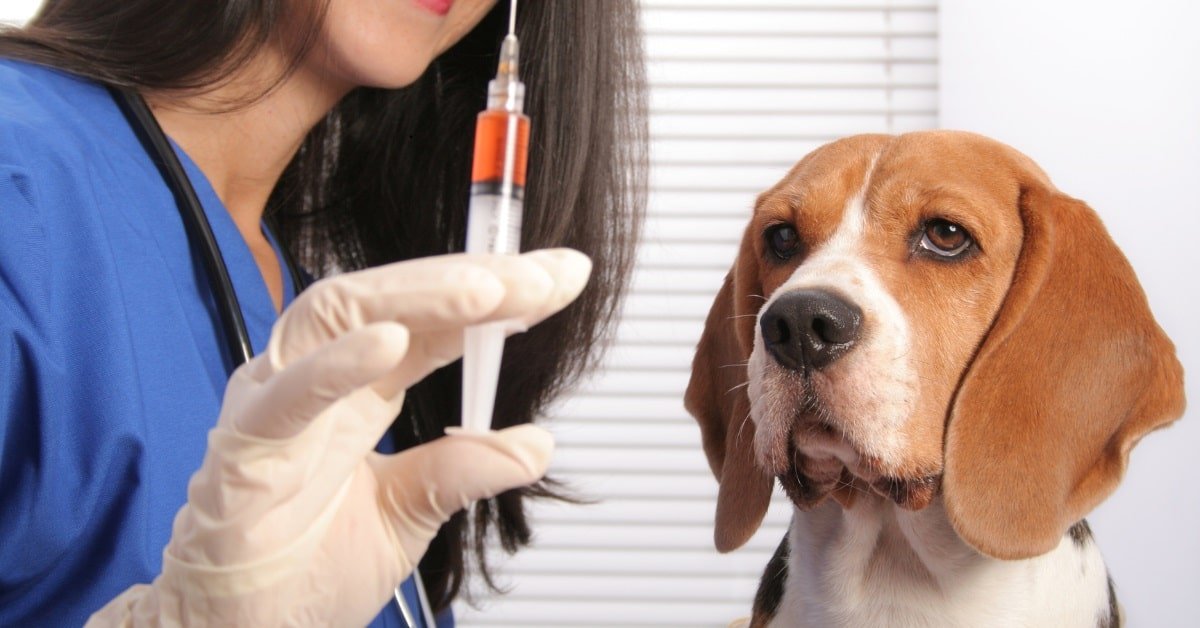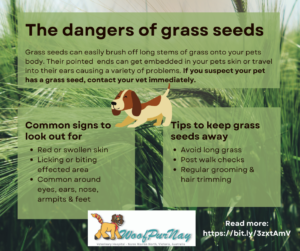Can Dogs Still Get Rabies If Vaccinated? Yes, dogs can still get rabies even if vaccinated, but the risk is extremely low. Rabies vaccines are highly effective in preventing the disease.
Vaccinating your dog against rabies is crucial for their health. Rabies is a deadly viral disease that affects the central nervous system. It spreads through the bite or saliva of an infected animal. While rabies vaccines are highly effective, no vaccine offers 100% protection.
Keeping vaccinations up-to-date reduces the risk significantly. Regular vet check-ups and booster shots ensure ongoing protection. Understanding the importance of rabies vaccination helps keep your pet safe. Protecting your dog from rabies also safeguards your family and community. Stay informed and proactive about your pet’s health.
Table of Contents
Rabies And Its Impact: Can Dogs Still Get Rabies If Vaccinated
Rabies is a serious viral disease that affects the nervous system. It can be deadly for both animals and humans. Knowing its impact is crucial for every dog owner. Vaccination is important, but can vaccinated dogs still get rabies? Let’s explore.
What Is Rabies?
Rabies is caused by a virus that attacks the brain. It is usually spread through the bite of an infected animal. The virus is present in the saliva of the infected animal.
The virus travels from the bite wound to the brain. This can take weeks or even months. Once symptoms appear, the disease is almost always fatal.
How Rabies Affects Dogs
Infected dogs may show signs of aggression. They might also become very shy or scared. Other symptoms include drooling, difficulty swallowing, and paralysis.
The disease progresses in stages. Early symptoms are mild, but they quickly become severe. The final stage is marked by paralysis and death.
Vaccination can prevent rabies in most cases. But no vaccine is 100% effective. Keeping your dog vaccinated greatly reduces the risk.
| Symptoms | Stages |
|---|---|
| Aggression | Early |
| Shyness | Early |
| Drooling | Middle |
| Difficulty Swallowing | Middle |
| Paralysis | Final |
Keeping your dog away from wild animals is important. Always check for signs of rabies if your dog is bitten. Quick action can save lives.
Vaccination Basics
Vaccines are important for keeping dogs healthy. They protect against serious diseases. One of these diseases is rabies. Rabies is dangerous for dogs and humans. Vaccinating your dog helps prevent rabies.
How Vaccines Work
Vaccines teach the immune system to fight diseases. They contain weakened or dead germs. When a dog gets a vaccine, its body learns to fight the germ. This helps the dog stay healthy if it meets the germ again.
Types Of Rabies Vaccines
There are different types of rabies vaccines. Some are live vaccines. Live vaccines contain a weakened form of the virus. Others are killed vaccines. Killed vaccines contain a dead virus. Both types help protect dogs from rabies.
| Type of Vaccine | Description |
|---|---|
| Live Vaccine | Contains a weakened form of the virus. |
| Killed Vaccine | Contains a dead form of the virus. |
Effectiveness Of Rabies Vaccines
Rabies vaccines are crucial for protecting dogs from the deadly rabies virus. They build immunity and reduce the risk of infection. But how effective are they?
Success Rates
Rabies vaccines have high success rates. Studies show they are 99% effective in preventing rabies. This means vaccinated dogs are very unlikely to get rabies.
| Success Rate | Details |
|---|---|
| 99% | Most dogs build strong immunity |
Factors Influencing Effectiveness
Several factors can influence the effectiveness of rabies vaccines:
- Age: Puppies need multiple doses for full protection.
- Health: Sick dogs may not respond well to vaccines.
- Storage: Vaccines must be stored properly.
Vaccinated dogs usually stay protected if they get regular boosters. Missing a booster can reduce effectiveness. Always follow the vet’s schedule.
Overall, rabies vaccines are highly effective. They save lives and keep your pet safe.
Can Vaccinated Dogs Get Rabies?

Credit: https://www.littlemiamivetclinic.com/site/home
Symptoms Of Rabies In Vaccinated Dogs
Rabies is a deadly virus that affects the nervous system of mammals. While vaccinations are effective, no vaccine is 100% foolproof. Knowing the symptoms of rabies in vaccinated dogs is crucial. Early detection can save your dog’s life.
Early Signs
Early symptoms of rabies in vaccinated dogs can be subtle. Watch for these signs:
- Behavior changes: Your dog may act differently.
- Appetite loss: Your dog may stop eating.
- Fever: A slight increase in body temperature.
- Fatigue: Your dog may seem tired or weak.
These early signs are easy to miss. Pay close attention to any changes in your dog’s behavior.
Advanced Symptoms
As rabies progresses, symptoms become more severe. Look for the following advanced signs:
| Symptom | Description |
|---|---|
| Paralysis | Inability to move parts of the body. |
| Seizures | Sudden, uncontrolled electrical disturbances in the brain. |
| Hydrophobia | Fear of water and difficulty swallowing. |
| Excessive Salivation | Increased drooling and foaming at the mouth. |
| Coma | Prolonged state of unconsciousness. |
Advanced symptoms are usually unmistakable. Immediate veterinary care is essential. If your dog shows any of these signs, act quickly.
What To Do If You Suspect Rabies
If you suspect your dog has rabies, act quickly. Rabies is a serious disease. Vaccinated dogs can still contract rabies, though it’s rare. Here’s a guide on what to do.
Immediate Actions
First, isolate your dog from other animals and people. Rabies can spread through saliva. Avoid direct contact with the dog’s mouth. Wear gloves and long sleeves if you must handle the dog.
Next, secure the area where the dog is kept. Keep it calm and in a quiet place. Noise and activity can agitate an infected dog. Monitor the dog from a safe distance.
Check for bites or wounds on your dog. This can help determine if rabies is a concern. If you find any, take note of their location and severity.
Consulting A Veterinarian
Contact your veterinarian immediately. Explain your concerns and the dog’s symptoms. The vet will provide instructions on what to do next. Follow these instructions closely.
Prepare for a vet visit. Transport your dog safely. Use a muzzle if necessary to prevent bites. Keep the dog calm during the journey.
At the vet, provide a detailed history of your dog’s behavior and health. Mention any recent bites or unusual activities. This information helps the vet make a proper diagnosis.
After the vet visit, follow all prescribed treatments and advice. This may include quarantine or medication. Monitor your dog closely for any changes in behavior or health.
| Step | Action |
|---|---|
| 1 | Isolate your dog |
| 2 | Secure the area |
| 3 | Check for wounds |
| 4 | Contact your veterinarian |
| 5 | Prepare for vet visit |
| 6 | Provide detailed history |
| 7 | Follow treatments |
Preventive Measures
Rabies is a serious concern for dog owners. Even vaccinated dogs need preventive measures. These steps ensure your dog’s safety and health.
Regular Vaccination
Regular vaccination is crucial for your dog’s health. Rabies vaccines protect dogs from the virus. Follow the vaccination schedule set by your vet. Puppies get their first rabies shot at 12 weeks. Adult dogs need boosters every one to three years. Regular check-ups ensure the vaccine is working.
| Dog Age | Vaccination Schedule |
|---|---|
| Puppies (12 weeks) | First rabies shot |
| Adults | Boosters every 1-3 years |
Avoiding Potential Risks
Avoiding potential risks is another key step. Keep your dog away from wild animals. These animals can carry rabies. Supervise your dog during walks. Use a leash to control their movements. Avoid letting your dog roam freely in unknown areas.
- Keep dogs away from wild animals
- Supervise your dog during walks
- Use a leash to control movements
- Avoid unknown areas
Educate family members about rabies risks. Teach them not to approach stray animals. Report any stray or wild animals acting strangely. Your vigilance helps keep your dog safe.
Myths And Facts
Understanding the myths and facts about rabies vaccination in dogs is crucial. This section will clarify common misconceptions and provide scientific evidence.
Common Misconceptions
Many people believe that vaccinated dogs cannot get rabies. This is a common myth. Vaccination greatly reduces the risk but does not eliminate it completely. Another misconception is that a single shot provides lifelong immunity. In reality, boosters are needed to maintain protection.
Some also think that rabies is only a concern in wild animals. Domesticated pets are also at risk if exposed to the virus. Believing that indoor dogs do not need vaccination is another myth. Dogs can still be exposed to rabies through contact with infected animals.
Scientific Evidence
Scientific studies show that rabies vaccines are highly effective. According to research, vaccinated dogs have a very low risk of contracting rabies. The Centers for Disease Control and Prevention (CDC) states that rabies vaccination is nearly 100% effective when administered correctly.
Research also indicates that booster shots are essential. A schedule of regular vaccinations helps maintain immunity. Data from veterinary studies support the need for periodic boosters.
Below is a table summarizing key points:
| Myth | Fact |
|---|---|
| Vaccinated dogs cannot get rabies. | Vaccination reduces risk but does not eliminate it completely. |
| One shot provides lifelong immunity. | Boosters are required to maintain protection. |
| Rabies is only a concern in wild animals. | Domesticated pets can also be exposed. |
| Indoor dogs do not need vaccination. | Indoor dogs can still be exposed to the virus. |
In summary, understanding these myths and facts helps keep your dog safe. Regular vaccinations and boosters are essential for long-term protection.
Frequently Asked Questions
Can Vaccinated Dogs Still Get Rabies?
Yes, but it’s extremely rare. Vaccination greatly reduces the risk. Regular booster shots are essential for continued protection.
How Effective Is The Rabies Vaccine For Dogs?
The rabies vaccine is highly effective. It provides strong immunity. However, no vaccine guarantees 100% protection.
What Should I Do If My Vaccinated Dog Is Bitten?
Consult a vet immediately. Even vaccinated dogs need evaluation. The vet may recommend a booster shot.
How Often Do Dogs Need Rabies Shots?
Dogs typically need rabies shots every one to three years. Follow your vet’s recommendations for your dog’s schedule.
Conclusion
Vaccinating your dog significantly reduces the risk of rabies. Regular boosters ensure continuous protection. Always follow your vet’s advice and maintain your dog’s health. Rabies is a serious disease, but with proper vaccination, your furry friend stays safe. Keep your dog vaccinated and enjoy peace of mind.



